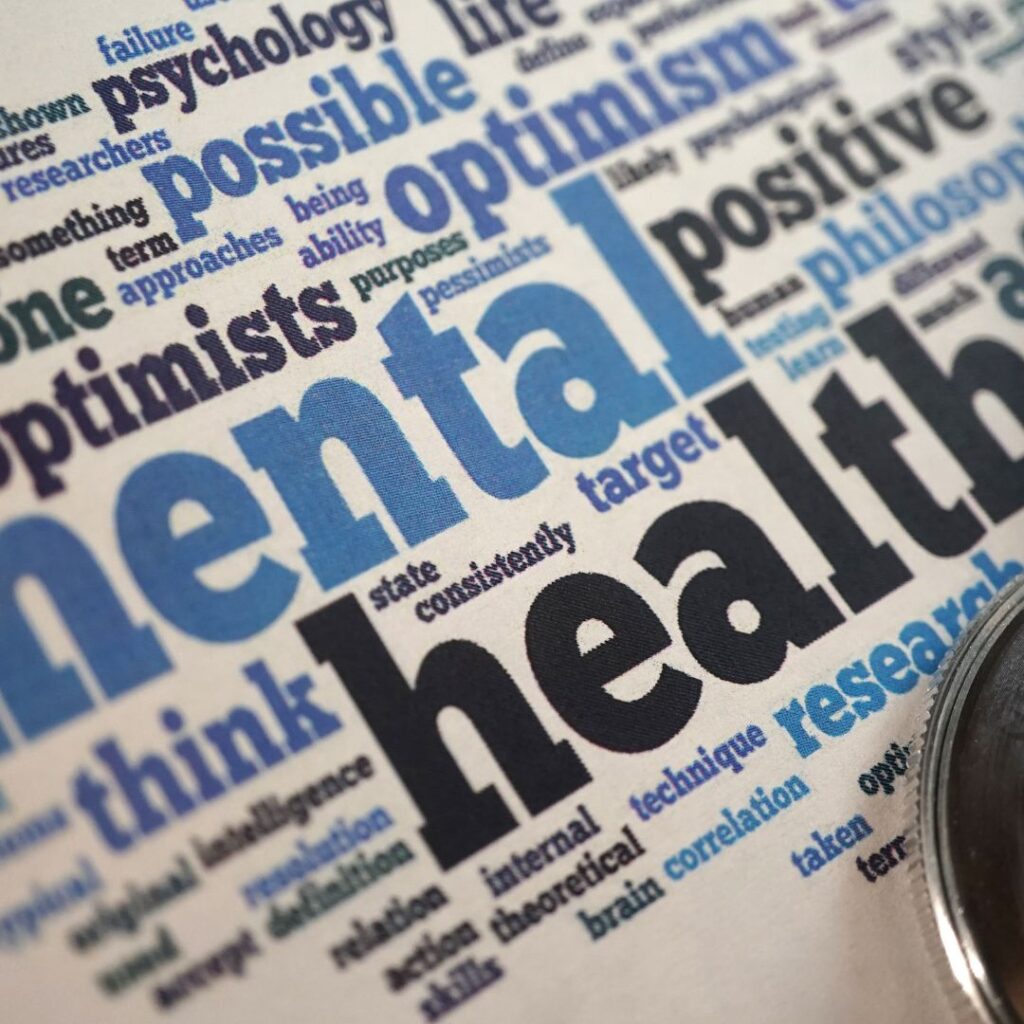Table of Contents
- Introduction
- The Process of Searching Scholarly Articles
- Understanding Scholarly Articles
- Finding Scholarly Articles on Mental Health
- How to Search for Scholarly Articles on Mental Health
- Tips for Reading and Understanding Scholarly Articles
- Conclusion
Introduction
This write-up delves into finding scholarly articles on mental health.
Scholarly articles are an invaluable resource for anyone interested in mental health. They provide detailed, research-based information on various mental health topics.
Unlike popular media reports, scholarly articles are written by experts and subjected to rigorous peer review before publication. This helps ensure the information presented is accurate, up-to-date, and based on sound scientific methods.
Accessing scholarly articles is crucial for those working in mental healthcare or studying psychology and related fields. These articles present cutting-edge research on mental health assessment, diagnosis, treatment, and more. Reading scholarly literature allows mental health professionals to stay current on the latest evidence-based practices they can use to serve clients and patients best.

For individuals with mental health conditions and their loved ones, scholarly articles can provide trustworthy information better to understand diagnoses, treatment options, and coping strategies. Scholarly research helps separate facts from myths and misconceptions surrounding mental illness.
The Process of Searching Scholarly Articles
With so much health information available today, finding scholarly articles relevant to specific mental health topics can be challenging. This guide aims to make the process easier by explaining:
- What makes an article “scholarly.”
- The best places to search for scholarly mental health articles.
- Effective search strategies and tips.
- How to read and understand scholarly articles.
Whether you’re a student researching a paper, a clinician looking for the latest evidence, or an individual seeking reliable mental health information, this guide will point you to authoritative scholarly articles. Access to current scholarly literature can enhance mental health knowledge and provide critical insights for improving well-being.
Understanding Scholarly Articles
What Makes an Article Scholarly?
Scholarly articles are written by experts in a field and report original research or experiments. They differ from popular articles in several key ways:
- Scholarly articles are always peer-reviewed. This means the article is read critically by other experts (peers) before being accepted for publication. Poor peer reviews will get a scholarly manuscript rejected.
- They are intended to communicate information to advance a field of study, not entertain general audiences. We are talking about a highly targeted audience.
- They follow a standard format and structure, including an abstract, introduction, methods, results, and discussion sections.
- Scholarly articles are prepared and published according to specific academic formats, such as APA Style, Chicago Manual of Style, etc.
- They use technical, field-specific language and assume the reader has background knowledge of the topic.
- References or bibliographies are provided to back up claims.
- Charts, graphs, data, and other evidence support findings.
- They are published in academic journals, not popular magazines.
Identifying if an article has these markers of a scholarly publication helps determine if it is backed by rigorous, objective research.
The Importance of Peer Review in Mental Health Studies
Peer review is the cornerstone of quality control in scholarly publishing. During peer-review:
- Experts in the same field critically read the article submitted for publication.
- They check that the research design and methods are sound.
- They verify analyses and conclusions are supported by the data.
- They identify any errors or areas needing improvement.
- The author revises the article to address peer comments.
- Finally, the article is accepted, rejected, or sent back for more revisions.
This rigorous process ensures scholarly articles present objective, accurate information readers can trust. Peer review weeds out unsupported claims, weak methodologies, and biases.
For mental health research, peer-review scrutiny is particularly important. It helps ensure studies promoting psychological assessment tools, diagnoses, or treatments are valid and evidence-based. Peer review guards against misinformation that could harm those seeking mental health services.
Finding Scholarly Articles on Mental Health
Online Databases
Online scholarly or journal databases offer powerful search tools for academic articles on mental health topics. These databases include millions of peer-reviewed publications from thousands of journals. Examples of comprehensive databases for mental health research include:
- PubMed – A specialized database of biomedical and life sciences journal literature.
- PsycINFO – Contains psychology and psychiatry publications with abstracts.
- PsycARTICLES – Full-text articles from journals published by the American Psychological Association and allied organizations.
Most academic institutions provide access to these and other subject-specific databases. Check with your organization if they subscribe to these database platforms. The advanced search functions allow you to pinpoint relevant scholarly articles efficiently.
Libraries
Don’t overlook academic and public libraries for finding scholarly mental health articles. Many libraries provide online access to scholarly databases and full-text journals. If an article isn’t available electronically, libraries may have physical copies. Librarians can offer guidance on navigating resources and services like interlibrary loans.
For local libraries, visit their websites to check database and journal offerings. More extensive university libraries often allow community members to access resources on-site.
Journals
The most cutting-edge scholarly articles on mental health appear first in academic journals before becoming more widely available. Browsing leading psychology, psychiatry, counselling, and social work journals can uncover the latest peer-reviewed research.
Examples of top and reputable journals publishing high-quality mental health articles include the Journal of Consulting and Clinical Psychology, JAMA Psychiatry, and Psychological Bulletin.
How to Search for Scholarly Articles on Mental Health
The keys to searching scholarly articles on mental health are using the right keywords, narrowing down your search, and following the citation trails.

Using Keywords
Effective keyword searching is vital to finding relevant scholarly articles efficiently. Here are some tips:
- Brainstorm the main concepts, theories, populations, or applications related to your topic.
- Try out different keyword combinations using Boolean operators like “AND” and “OR.”
- Use synonyms and alternate phrases for keywords to broaden the search.
- Start broad, then narrow down search terms for targeted results.
- Use quotation marks around multi-word keywords to search for exact phrases.
Keyword searching takes practice and refinement. Don’t get discouraged – try different keyword variations until you get better results.
Narrowing Down Your Search with Filters
Once you enter keywords, use database filters to home in on relevant scholarly articles:
- Peer-reviewed: Limit results to peer-reviewed/scholarly publications.
- Date range: Retrieve articles within a recent period.
- Subject terms: Select articles associated with specific topics.
- Document type: Choose “article” to exclude books, editorials, etc.
- Journals: Select specific journals to search.
- Language: Restrict by language published in.
Applying filters helps remove unsuitable results and highlights academic articles matching your criteria.
Citations: Following the research trail
An excellent technique for uncovering additional relevant scholarly articles is checking the reference lists of papers you’ve already found. References cite related literature the author used to support their research. Use their citations as leads to find other valuable articles on your topic. Good scholarly articles on mental health make reference to reputable materials and sources. The most frequently cited articles likely represent seminal research worth reading.
Google Scholar lets you click “Cited by” on an article to see newer papers referencing that work. Citation tracing guides you to critical articles and journal publishing on your mental health topic.
Tips for Reading and Understanding Scholarly Articles
Skim Through Abstracts
The abstract briefly summarises a scholarly article’s purpose, methods, findings, and conclusions. The abstract condenses the full paper down to key highlights. Before diving into the full text, read it first to determine if the article will be helpful.
Methods and Results
When reading a scholarly article, pay close attention to the methods and results sections. The methods describe how the study was conducted. Make sure it uses rigorous scientific procedures. The results present the data discovered. Charts, graphs, and statistics should support any conclusions drawn.
Evaluating the soundness of the methods and results helps determine if the findings are valid and evidence-based.
Discussion and Conclusion
A scholarly article’s discussion and conclusion sections explain what the findings mean. The authors interpret results, highlight key takeaways, note limitations, and suggest future research directions. This big-picture perspective ties the study together for readers.
The conclusion may also discuss practical research applications in mental health treatment or policy.
Conclusion
Navigating the vast amount of mental health information available today can seem daunting. But armed with the strategies in this guide, you now have a roadmap to locate credible scholarly articles for your needs, including finding scholarly articles on mental health.
Quality mental health research is out there; you have what it takes to find it. Remember to leverage all the expert resources available, from librarians to academic databases. Stay curious and dig deeper into the scholarly literature as you pursue knowledge to understand and enhance mental well-being.


I’ve always been a bit intimidated diving into the academic deep end, but your guide makes it feel like a leisurely swim. The tips on keyword searching and citation tracing? Pure gold. It’s refreshing to see someone demystify the process and make mental health research more accessible to all. Hats off to you for this comprehensive guide. Keep enlightening us!